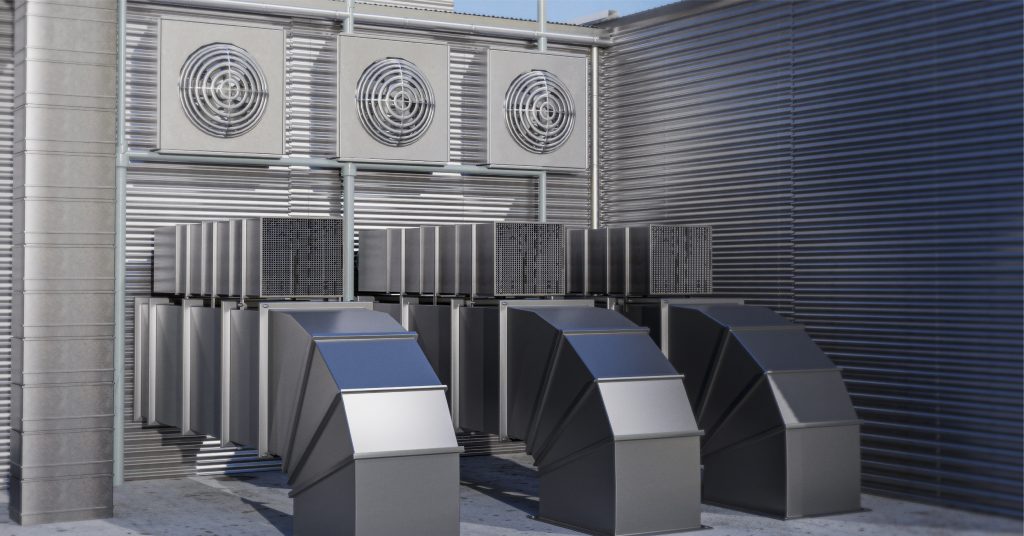In the scorching heat of Oman, where temperatures soar and humidity levels fluctuate, cooling towers play a critical role in maintaining comfortable indoor environments and efficient industrial processes. These towering structures are essential for heat dissipation in various settings, from power plants to commercial buildings, making them indispensable in the region’s climate.
However, Oman’s extreme weather conditions present unique challenges to cooling towers, such as high temperatures, dust accumulation, and humidity. Without proper maintenance, these factors can severely affect the performance and lifespan of cooling towers, leading to inefficiency and costly repairs. This article delves into the importance of regular maintenance and provides comprehensive tips for ensuring optimal cooling tower performance in Oman.
Understanding Cooling Towers: Types and Functions
A cooling tower is a heat rejection device that extracts waste heat into the atmosphere by cooling a water stream to a lower temperature. This process is vital in industrial and commercial settings where large amounts of heat must be dissipated efficiently. Cooling towers are integral components of air conditioning systems, power plants, and industrial processes, particularly in Oman, where cooling demands are high due to the hot climate.
There are various types of cooling towers, each designed for specific applications and environmental conditions. The two most common types used in Oman are natural draft and mechanical draft cooling towers.
- Natural Draft Cooling Towers: These rely on the natural rise of warm air to create airflow through the tower. Due to their design, natural draft towers are usually larger and are used in power plants where the cooling demand is massive.
- Mechanical Draft Cooling Towers: These towers use fans to force or draw air through them. Mechanical draft towers are more commonly used in commercial buildings and industrial settings in Oman. They are smaller and more flexible in design compared to natural draft towers, making them suitable for a wide range of applications.
The Science Behind the Cooling Process
The cooling tower working principle is based on the science of evaporative cooling. When warm water from industrial processes or air conditioning systems is pumped into the cooling tower, it is distributed over the fill media, where it flows downward while air flows upward. As the water comes into contact with the air, a small portion evaporates, removing heat from the remaining water and cooling it down.
In Oman, the efficiency of this cooling process is influenced by environmental factors such as temperature and humidity. High ambient temperatures can reduce the temperature difference between the water and the air, making it harder for the cooling tower to dissipate heat. Similarly, high humidity levels can decrease the rate of evaporation, further reducing cooling efficiency.
Cooling Tower Water Treatment Methods
In Oman, where water quality can vary, effective water treatment is even more crucial. Without proper treatment, minerals in the water can precipitate out and form scale on the cooling tower surfaces, reducing heat transfer efficiency. Several water treatment methods are commonly used in Oman to ensure the efficient operation of cooling towers:
- Chemical Dosing: This involves the addition of chemicals such as biocides, scale inhibitors, and corrosion inhibitors to the water to prevent the formation of scale, corrosion, and microbial growth.
- Filtration: Filtration systems remove suspended particles from the water, preventing them from settling in the cooling tower and causing blockages or abrasion of components.
- Biocides: Biocides are chemicals that kill or inhibit the growth of microorganisms in the cooling tower water.
Regular Maintenance Tips for Cooling Towers in Oman
Regular maintenance is the key to ensuring optimal cooling tower performance, especially in Oman’s harsh climate. Here are some essential maintenance practices that should be followed:
- Inspect and Clean the Fill Media: Dust and debris can accumulate on the fill media, reducing its effectiveness in promoting heat exchange.
- Check and Maintain Fans: Fans play a crucial role in mechanical draft cooling towers. It helps in checking the alignment and condition of fan blades, which are necessary to ensure smooth operation.
- Monitor Water Quality: Regular testing of the cooling tower water for pH, conductivity, and chemical levels is essential for maintaining water quality.
- Inspect Drift Eliminators: Drift eliminators should be inspected regularly to ensure they are functioning properly and preventing excessive water loss.
- Check for Scale and Corrosion: Regular inspection of the cooling tower surfaces for scale and corrosion is necessary.
- Ensure Proper Water Flow: Blockages or leaks in the water distribution system can reduce the effectiveness of the cooling tower.
How Ion Exchange Leads in Delivering Specialized Water Treatment
Our utility water treatment chemical solutions offer comprehensive and efficient treatment and management for raw water, boiler and cooling water systems, membranes, evaporator systems, and wastewater treatment systems. These solutions significantly enhance the performance of utility water systems by safeguarding metallurgy and valuable assets while promoting environmental protection through the safe and reduced discharge of water.
-
Green Chemistry
Additionally, our product range features innovations using Green Chemistry under the INDION brand, ensuring that our chemicals are not only effective but also safe to use, biodegradable, and made from renewable feedstocks. Our commitment to sustainability is further reflected in our advanced technologies for process biocides, antiscalants, scale inhibitors, coagulants, flocculants, and defoamers, all of which cater to the growing industry demand for safe and eco-friendly products.
-
Cooling Water Treatment Chemicals
ION EXCHANGE offers a comprehensive range of cooling water treatment chemicals designed to address various issues like fouling, bio-fouling, and Microbiologically Induced Corrosion (MIC) caused by suspended solids and microbiological organisms. Their solutions include scale control additives, corrosion inhibitors, dispersants, silica scale inhibitors, and specialized programs for deposit and corrosion control. Additionally, they provide a variety of biocides, including oxidizing and non-oxidizing options, as well as advanced chlorine dioxide generators and automatic dosing systems, ensuring optimal performance and protection for cooling water systems.
Conclusion
In Oman’s demanding climate, regular maintenance is crucial for ensuring the optimal performance and longevity of cooling towers. By understanding the cooling tower working principle and implementing effective cooling tower water treatment, operators can prevent common issues such as scale buildup, corrosion, and microbial growth. Regular maintenance practices, including inspection and cleaning of key components, are essential for maintaining cooling tower efficiency and reliability.


